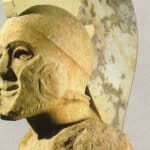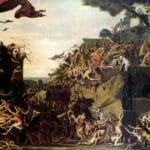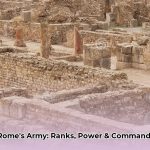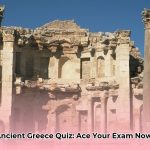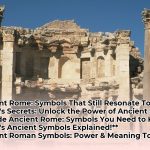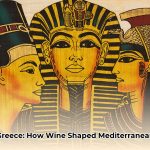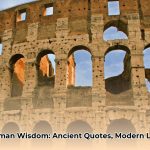Imagine a civilization where the very essence of masculinity wasn’t just inherited but rigorously earned, challenged, and constantly redefined. Ancient Greece, a cradle of philosophy, democracy, and warfare, offered a complex tapestry of expectations for its men. Far from a uniform ideal, the definition of a “man” varied profoundly across vibrant city-states like Sparta and Athens, encompassing everything from battlefield prowess and political acumen to household leadership and intellectual pursuit. What did it truly mean to navigate daily life as a man in this dynamic era, where societal roles were deeply ingrained and honor was paramount?
This exploration delves into the intricate power dynamics, demanding civic responsibilities, and the fluid concept of masculinity that shaped the lives of men in ancient Greece. We will uncover how education, political engagement, economic activities, and personal honor were not merely aspects of life but fundamental pillars determining one’s status and identity. By examining these ancient ideals—and their often surprising nuances—we gain critical insights into historical gender roles and discover echoes that resonate even in our contemporary world.
The Foundations of Ancient Greek Manhood: Roles and Expectations
The lives of men in ancient Greece were inextricably linked to their societal roles, demanding active participation and unwavering dedication. They were, first and foremost, expected to be leaders: adept warriors, astute politicians, and the undisputed heads of their households. Core virtues such as physical strength, unyielding bravery, intellectual sharpness, and an inherent sense of duty were immensely valued. However, the specific manifestation of “manliness” (andreia) differed significantly depending on the prevailing city-state and the historical epoch. How did these overarching societal expectations, rigid political structures, and deep-seated cultural norms genuinely shape what it meant to be a man in this foundational civilization?
Civic Responsibility and Political Dominance
For a man in ancient Greece, particularly in democratic city-states like Athens, active involvement in politics was not merely a privilege but a fundamental expectation—a perceived and indispensable component of his identity. Adult male citizens wielded substantial power within their communities, holding prominent positions in government, commerce, and industry. The right to vote and participate in the assembly (ekklēsia) was largely exclusive to men, providing them a direct voice in shaping the trajectory and direction of their respective city-states. Imagine the immense pressure to contribute sound decisions for the public good, knowing one’s voice held significant weight. Their participation was paramount, not just for personal standing but for the very survival and prosperity of the polis. They were expected to rigorously debate and decide on matters of war and peace, legislation, and civic administration, making political engagement a full-time commitment for many.
The Imperative of Military Service and Valor
Serving in the military transcended a mere occupation; it was a critical rite of passage and an undeniable expectation in the journey to becoming a full-fledged man and citizen. Demonstrating unwavering courage and skill in battle was paramount, with cowardice often leading to severe social ostracism and humiliation. The concept of andreia—manliness and courage—was interpreted differently, though its importance remained universal. In Sparta, for instance, there was an almost singular emphasis on fearlessness, physical endurance, and absolute obedience in direct combat. Spartan men were rigorously trained from a young age for military service, with their worth often judged almost entirely on their ability to face death without flinching and serve the state unreservedly. This commitment to martial excellence was seen as the highest form of virtue, essential for the defense of the city-state. Even in Athens, where intellectual pursuits were highly revered, men were expected to serve as hoplites, heavily armed citizen-soldiers who were the backbone of Greek armies, fighting in the formidable phalanx formation.
The Oikos: Family, Household, and Economic Stewardship
Beyond the public sphere, a man’s primary domain was his household, or oikos. As the kyrios (master of the household), he exercised considerable authority over his family, including his wife, children, and enslaved persons. It was his paramount responsibility to diligently manage the family’s resources, including land, property, and wealth, thereby ensuring its survival and prosperity. This included overseeing agricultural output, managing trade, and making crucial financial decisions. The man was explicitly responsible for the education and upbringing of his children, particularly his sons, preparing them for their future roles as citizens and heads of their own households. This weighty responsibility was a constant presence in their daily lives, balancing the demands of public life with the intimate duties of familial well-being. The reputation of the oikos was directly tied to the behavior and conduct of its male head.
The Nuances of Masculinity: Ideals and Sexual Realities
The ideal of what it meant to be a man in ancient Greece was inherently complex and far from monolithic. It wasn’t solely about being physically robust or a skilled fighter. In Athens, for example, being an eloquent speaker (rhetor), possessing sharp intellect, and actively engaging in philosophical debate were also crucial elements. An ideal Athenian man was expected to be well-rounded, cultivating both mind and body.
However, masculinity was also intricately intertwined with concepts of sexuality and social power. While ancient Greeks were notably liberal in their sexual practices compared to modern Western societies, dynamics of power and social standing often defined relationships. The active/passive dynamic was critical: being the “penetrator” was an act of dominance and masculinity, whereas willingly playing the “passive” role could be seen as effeminate and unmanly for a free citizen, potentially damaging his reputation. This applied across heterosexual and homosexual encounters. Accusations of sexual deviancy, particularly the “passive” role for an adult citizen, could irrevocably damage a man’s reputation and his standing within the community. Pederasty, relationships between older men (erastes) and younger males (eromenos), existed and sometimes served as a form of mentorship, especially in military contexts (like the Sacred Band of Thebes, which consisted of 150 gay couples believed to fight more fiercely). Protecting one’s family honor, maintaining control over one’s household, and seeking vengeance for wrongs committed against them were also closely intertwined with a man’s honor and civic identity.
Marriage in Ancient Greece: A Strategic Alliance, Not Romantic Love
Marriage in ancient Greece, known as gamos, was a profoundly serious affair, distinctly removed from modern notions of romantic love and individual choice. Instead, it was predominantly a meticulously orchestrated arrangement between families, primarily a strategic alliance aimed at securing and consolidating wealth, enhancing social power, and ensuring the uninterrupted continuation of the family lineage. Think of it less like a fervent love story and more like a carefully calculated socio-economic transaction, undeniably effective in maintaining ancient social order and stability.
The Patriarchal Arrangement: A Family’s Decision
The intricate process of finding a wife typically began with the parents, most often the fathers, who acted as the primary matchmakers from both prospective families. They diligently sought highly advantageous unions, carefully considering factors such as the prospective bride’s family status, accumulated wealth (often through her dowry), and her potential to produce healthy, desirable offspring, especially male heirs. Professional matchmakers (proxenetai) might even be employed to assist in this search, acting as impartial intermediaries and scouting suitable candidates within the community. Personal feelings between the bride and groom were often secondary, if considered at all, in such strategic partnerships, as the union served a broader communal and familial purpose.
The Crucial Role of Dowries and Legacy
The dowry (phernē) was an absolutely critical component of any ancient Greek marriage agreement. Provided by the bride’s family, it served as her essential financial safety net within the marriage. A substantial dowry could provide significant protection from potential mistreatment or abandonment, as it would invariably have to be returned to her family if the marriage were to dissolve, a powerful financial disincentive for the husband. It also served as a means for the bride’s family to maintain a degree of influence and security within the newly formed union, symbolizing their continued stake in her well-being and her children’s future. The primary purpose of matrimony was unequivocally procreation, particularly the production of legitimate male heirs to carry on the family name, inherit property, and fulfill crucial civic duties. A woman’s value was largely, if not entirely, tied to her ability to produce offspring, and barrenness could unfortunately be legitimate grounds for divorce, underscoring the societal emphasis on lineage preservation.
Age Disparity and Wedding Festivities
A significant age disparity was common, with women typically marrying in their mid-teens, often shortly after reaching puberty (around 14-16 years old), while men were usually in their late twenties or early thirties, having completed their demanding military service, established their careers, and secured themselves financially within society. This considerable age gap reflected the distinct societal expectations placed upon men and women at various stages of their lives, highlighting different paths to maturity and social integration within the patriarchal structure.
Athenian wedding ceremonies were elaborate, multi-day affairs steeped in tradition and communal celebrations. The Proaulia was the pre-wedding preparation phase, where the bride spent meaningful time with her female relatives and closest friends, making symbolic offerings to the gods (especially Artemis and Hera) to secure blessings for her new life and fertility. The Gamos, the actual wedding day, involved a festive procession (ekdosis) from the bride’s home to the groom’s house, accompanied by joyous music, traditional singing, and energetic dancing. This public declaration of the union was a vibrant display of communal approval. The Epaulia, the post-wedding celebration, included communal feasting and the formal exchange of gifts, marking the official and full integration of the bride into her new household and family, symbolizing the transition of her identity.
Diverse Matrimonial Customs Across City-States
It is crucial to remember that ancient Greece was not a monolithic entity, and different city-states boasted their own unique customs and interpretations of marriage. Spartan marriages, for instance, were particularly known for their unusual rituals, which included the bride dressing in men’s clothing, having her hair cropped short, and a staged, ritualistic “capture” of the bride by the groom. These distinctive practices emphasized the production of robust warriors and the profound importance of physical prowess and state loyalty above all else in Spartan society, often downplaying the individual emotional bond in favor of civic duty. These differences underscore how deeply cultural values influenced even the most intimate aspects of life.
In conclusion, marriage for Greek men was a complex interplay of interwoven social obligation, shrewd economic strategy, and the fundamental need to ensure the continuation of the family line and prosperity. While affection may have occasionally blossomed within these unions, it was rarely, if ever, the primary motivation for their formation.
Citation: https://www.worldhistory.org/article/1713/love-sex–marriage-in-ancient-greece/
Sparta vs. Athens: A Clash of Masculine Ideals and Societal Structures
Ancient Greek masculinity was certainly not a universal, one-size-fits-all concept. Instead, it mirrored a constantly shifting landscape, profoundly influenced by individual city-state values and specific socio-political contexts. Sparta and Athens offer particularly striking and competing ideals of what it meant to be a man, embodying two distinct pathways to achieving andreia.
Spartans were celebrated for their unparalleled military prowess and unwavering loyalty to the state. Their ideal man was a courageous warrior, relentlessly disciplined, and utterly devoted to the collective. Manliness (andreia) was achieved through grueling physical training from a tender age (the Agoge), constant readiness for war, and the systematic suppression of personal emotions in favor of collective fortitude. This rigorous system, which began for boys at age seven, molded them into professional warrior-citizens, housed in communal barracks, focusing on endurance, survival skills, hunting, and athletics. Cowardice (trepō), conversely, resulted in severe social ostracism and harsh punishments, often leading to exile or even suicide. For Spartans, loyalty to the state came before everything else, including family.
Athenian masculinity, while also valuing courage and military service, encompassed a much broader spectrum of qualities. The kyrios (household master) held significant authority within his domestic sphere, meticulously maintaining family honor and integrity, ensuring its economic stability, and overseeing the education of his children. However, political engagement was equally central to Athenian male identity. Citizens actively participated in the ekklēsia (assembly), which allowed for robust free speech, open debate, and direct influence over public policy. The art of rhetoric—skilled persuasion through eloquent oratory—was highly valued, and accomplished speakers held considerable political power and prestige, often destroying rivals in public debate rather than on a battlefield. For most Athenians, embracing the ups and downs of a full-fledged citizen actively involved in the polis was the ultimate male pursuit, defining them as distinct from “idiots” (private persons).
Sexuality, Power, and Social Hierarchies in Manhood
Masculinity in both cities was intricately intertwined with concepts of sexuality and power dynamics. The active/passive dynamic often defined male relationships, where penetration symbolized dominance and submission implied effeminacy. Pederasty, relationships between older men and younger males, existed in both cities, but its societal roles and interpretations differed considerably. In Sparta, older warriors formally mentored younger recruits, acting as instructors and role models within the military training system, believed to forge stronger bonds and enhance battlefield effectiveness. In Athens, it was a recognized sociocultural norm among aristocratic circles, but crucially, passive homosexual acts for adult citizens were often stigmatized (kinaidoi), reflecting specific societal anxieties about male identity and status. Free citizen men usually avoided such roles to prevent public labeling as effeminate.
The Contrasting Roles of Women
The roles and experiences of women distinctly highlight the profound differences between Sparta and Athens. Spartan women generally enjoyed greater autonomy than Athenian women. They managed finances, owned and disposed of private landed property, and engaged in rigorous athletic training for the purpose of bearing strong, healthy children for the state. While they had more freedom of movement and power within the household compared to other Greek women, it is vital to remember that men still largely controlled their wives’ ultimate choices and significant decisions, retaining the upper hand even in managing their wives’ sexual lives.
Athenian women, in stark contrast, were largely confined to the domestic sphere and the oikos. They notoriously lacked significant political and economic opportunities, were legally considered minors, and were under the complete authority of their husbands or male guardians. Their primary roles were weaving, managing enslaved persons within the home, and, most importantly, bearing legitimate children to continue the family lineage. They had limited freedom of movement and were generally secluded from public life, embodying a much more constrained existence.
Nuances and Enduring Insights
It is absolutely crucial to avoid oversimplification when analyzing the multifaceted lives of ancient Greeks. For instance, archaeological evidence surprisingly indicates that some disabled infants in Sparta were nurtured rather than universally abandoned, directly challenging the rigid historical narrative of their uncompromising eugenics based solely on “survival of the fittest.” Investigating such historical precedents profoundly enhances our understanding of modern gender dynamics and societal expectations, prompting reflection on how ancient models continue to inform contemporary views on gender, power, and societal expectations.
| Feature | Sparta | Athens |
|---|---|---|
| Core Value of Manhood | Unwavering Military Prowess, Spartan discipline, Absolute Loyalty to the state, Physical Endurance, Emotional Stoicism. | Intellectual Pursuits, Eloquence (Rhetoric), Active Political Engagement, Philosophical Inquiry, Civic Responsibility. |
| Ideal Man | Courageous Warrior (Hoplite), Physically hardened, Obedient to state authority, Master of self-control (especially over fear and emotion). | Skilled Orator/Statesman, Cultured Intellect, Active Citizen (participating in Assembly and judicial processes), Responsible Kyrios overseeing oikos and family reputation. |
| Primary Education | Rigorous, communal military training (Agoge) from age 7 to 18; focus on physical conditioning, combat skills, survival, and absolute fealty to the polis. | Broad curriculum for wealthy citizens, including reading, writing, mathematics, music, rhetoric, philosophy, and physical training (gymnasium). Aimed at cultivating well-rounded, articulate, and ethically grounded citizens capable of leadership. |
| Political System | Oligarchy/Diarchy, with significant power held by two kings, a council of elders (Gerousia), and overseers (Ephors). Focus on maintaining military readiness and collective strength. | Direct Democracy, where male citizens over 18 directly participated in the Assembly (ekklēsia), proposed laws, and voted. Emphasis on free speech (parrhesia) and civic debate in the agora (marketplace). |
| Women’s Role | Relatively more autonomy; could own and dispose of private landed property; participated in athletic training; managed the household and helots (state-owned enslaved people) while men were in barracks/war. | Largely confined to the domestic sphere (gynaikon); limited legal rights; primarily responsible for weaving, managing house, and child-rearing; under the legal authority of male relatives. Rarely seen in public except for specific religious festivals. |
| Sexuality & Dynamics | Pederasty as a form of military education/mentorship to foster loyalty and discipline; active/passive roles tied to dominance in battle. | Pederasty as a sociocultural phenomenon among aristocratic circles; active role for adult men seen as dominant, passive role for free adult men often stigmatized as effeminate (kinaidoi). Use of prostitutes (hetaerae, pornai) also common. |
| Leisure Activities | Focused on physical training, hunting, and military exercises. | Included symposia (drinking parties with intellectual discussion), wrestling competitions, Olympic Games (for males only), theatrical performances, and philosophical discourse. |
| Clothing & Appearance | Often wore practical, simple garments suitable for military life; valued long hair as a sign of pride and a “cheap jewel.” | Wore chitons (knee-length for men), chlamys (cloak for travel/war), and himation (large cloak); short hair and beards were common, with barbershops as social hubs for political and philosophical exchange. |
| Treatment of Infants | Reputedly practiced infanticide by “exposure” for infants deemed physically unfit by elders upon examination, though archaeological evidence suggests some disabled infants were nurtured. | Unwanted infants could be “exposed” (left to die), but often done in a way that allowed for survival and adoption by other families. |
Ancient Greece offers invaluable lessons about gender formation and the intricate functions of societal structures. What truly can we learn from meticulously comparing the distinct Spartan and Athenian ideals of manhood? It prompts profound reflection on contemporary views regarding gender, power, and societal expectations. By diligently examining these ancient societies, we gain critical insights that are remarkably valuable for understanding today’s world, recognizing both enduring human aspirations and the shifting nature of societal constructs.
Citation: https://historyrise.com/what-were-expectations-for-men-in-ancient-greece/
- Unearth ancient rome achievements: Engineering feats & legal legacies, examined - August 13, 2025
- Unlock ancient rome army ranks: Power, impact & legion command - August 13, 2025
- Conquer Your Exam: Ancient Greece Quiz Ace It Now! - August 13, 2025

